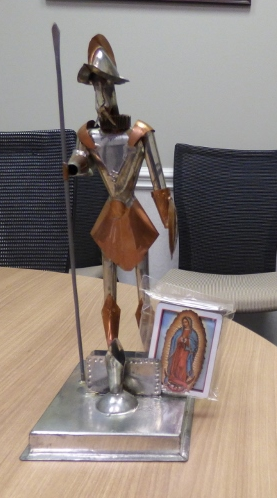Latino Americans in Augusta Oral History Project: Arturo Razo
Interview of Arturo Razo with Erin Prentiss
Interview part 1
Interview part 2
Interview Summary
Mr. Razo is in his 60s and of Mexican descent. His mother is from Mexico, and his father was born in Texas, but his father’s family later moved to Mexico. Mr. Razo speaks positively of his hometown of Chicago, where he lived near downtown Chicago in a mostly Italian neighborhood near a number of Chicago landmarks, and his school was a mix of cultures. His father came to Chicago with his parents (Mr. Razo’s grandparents), who moved to the U.S. due to unrest in Mexico. His father came to the U.S., eventually settling in Chicago. Mr. Razo was born in Chicago. He discusses living in an Italian neighborhood, speaking Spanish in the home, and growing up in a working-class family.
Joining the army allowed Mr. Razo the opportunity to travel, since he didn’t have much money. He liked the military and saw the signing bonuses from the military during the Vietnam War as money he could use for college. He enjoyed traveling with the military through Europe. He talks about ROTC in high school was an alternative to gang membership growing up in Chicago, something that was not attractive to him.
Mr. Razo then discusses the meanings of some of the artifacts that he brought—Mexican pesos, a pen holder with a carving of a Mexican farmer, a basket in the shape of a truck/cart, and rocks from the mountain where his father grew up in Mexico.
Mr. Razo is a coin collector, and he keeps these pesos because his uncle collected coins and gave him coins as a young kid. He describes the coins.
The pen holder is a replacement for a similar gift from his parents. It represents the farm labor that his father used to do and is a reminder of his choice between manual labor and going to college and becoming a professional.
The rocks and truck/cart basket remind Mr. Razo of where his family came from (his father worked on a farm on a volcanic mountain) and what Mr. Razo could have been (a farm laborer like his father was in Mexico).
Mr. Razo discusses how originally he came to Augusta through the military in the late 1970s due to medical reasons. He found another military job because he could no longer continue being a parachutist. He bought a home in the early 1980s for his wife at the time who wanted to stay in the States while he was abroad in the military. Family, better weather, and healthcare from the VA are reasons that he has remained in Augusta.
He discusses the changes he has seen in Augusta in the area as a whole and for its Hispanic residents. The area was less populated and there were a lot of trees when he moved here. There weren’t many Hispanic people. His mother sent him homemade tortillas. The only Hispanic store was La Casa Latina. The diversity of the area has grown. Now there are over 30 Hispanic stores in the area.
There is no single Hispanic neighborhood, which makes it difficult to share information. The Hispanic-serving churches perform that function. He describes the reaction of the Augusta community to its Hispanic members as a positive one, but he feels like he has gotten used to Augusta and others might have different opinions.
One thing he would change to help this Hispanic community would be to have a Hispanic radio station to share information with Hispanic members of the Augusta community.
He discusses how he came to be a real estate agent in Augusta. He attended a job fair and met Dr. Jana Sandarg who invited him to become of the Asociación Cultural Hispanoamericana (ACHA). He saw it as a way to be involved in the community and practice his Spanish language skills. He describes the positions he has had in the organization, including president.
Mr. Razo describes the organization as an organization that has enjoyed good times and weathered bad ones over its 30 years of existence. He discusses highlights of being involved in ACHA for him are acquisition of a 501 (c) 3 designation while he was president, co-founding the Senorita Latina pageant, performances at ACHA events by different groups, performing folk dances, making friends with members, and watching people grow up in the organization.
He explains that the metal sculpture—Don Quixote, the symbol of ACHA. The sculpture symbolizes facing the unknown, like when he joined the service. He explains why he brought the image of the Virgen de Guadalupe from Mexico to demonstrate that religion is important to him and a way to cope in the world. Mr. Razo talks about his mother’s strong faith and family involvement in the church.
Photos
Mr. Razo is a coin collector. He began collecting coins as a child. These are coins that were given to him.
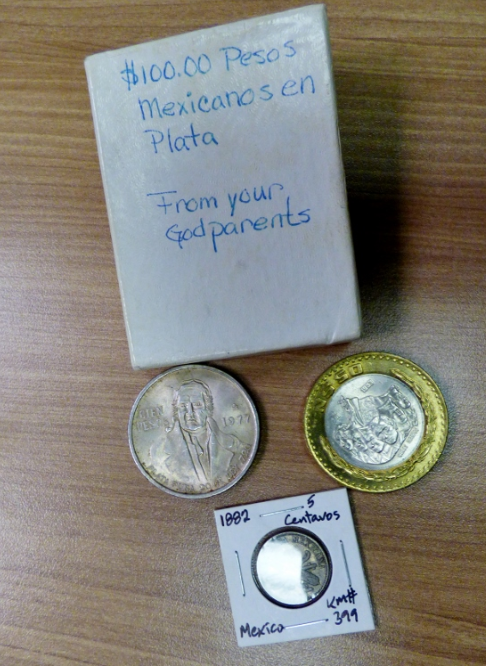
Pen holder in the image of a laborer. This is a replacement for a gift given to him by his parents. This is similar to that. This symbolizes Razo's choice between furthering his education or becoming a farmworker.
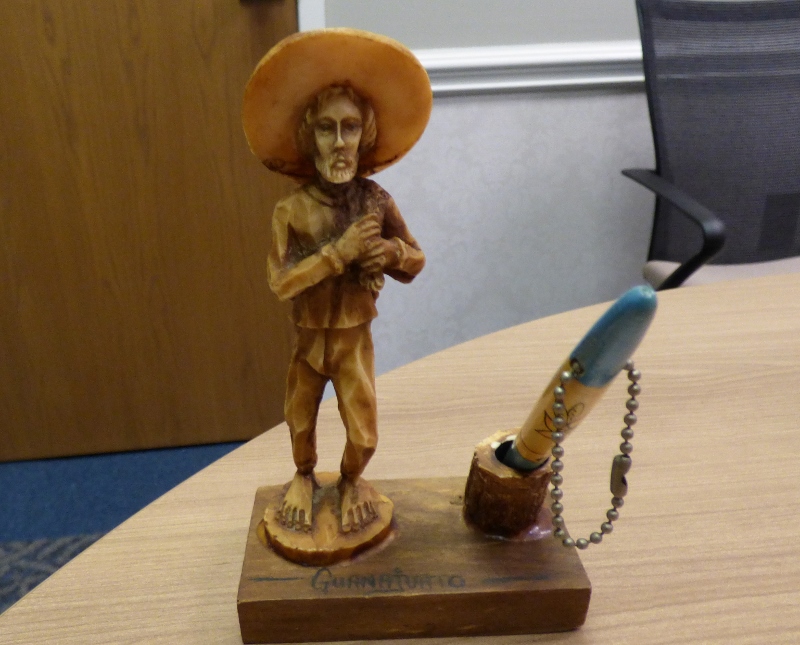
These rocks are part of a volcanic mountain where Razo's father used to farm. These rocks show how difficult the terrain was to farm. Razo visited his father's hometown and picked up these rocks then.
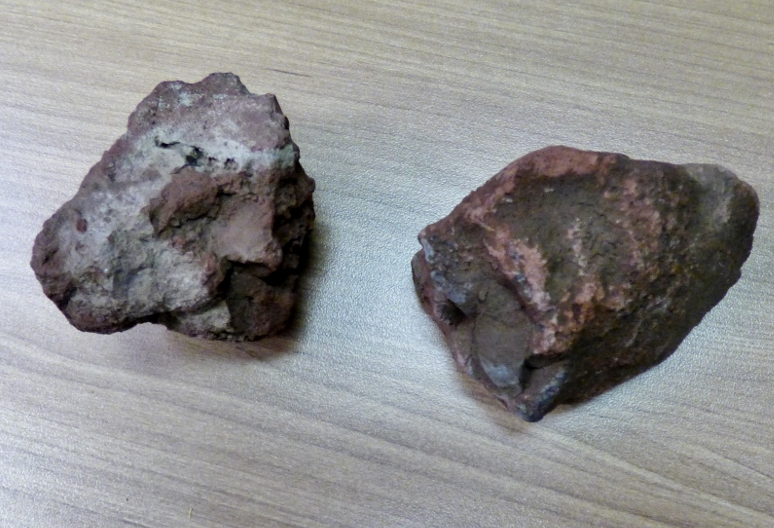
This is a reminder that Mr. Razo could have become a laborer.
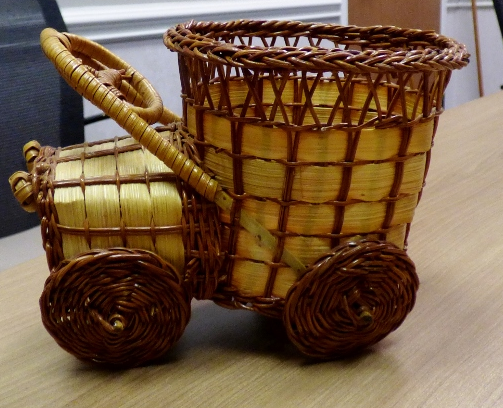
Pen holder of Don Quijote, the title character of Miguel Cervantes novel of the same name. Don Quijote is the symbol of Asociación Cultural Hispanoamericana, Miguel Cervantes. Symbolizes facing the unknown, which Razo describes as the way we live our lives. Virgen of Guadalupe figure symbolizes his faith.
